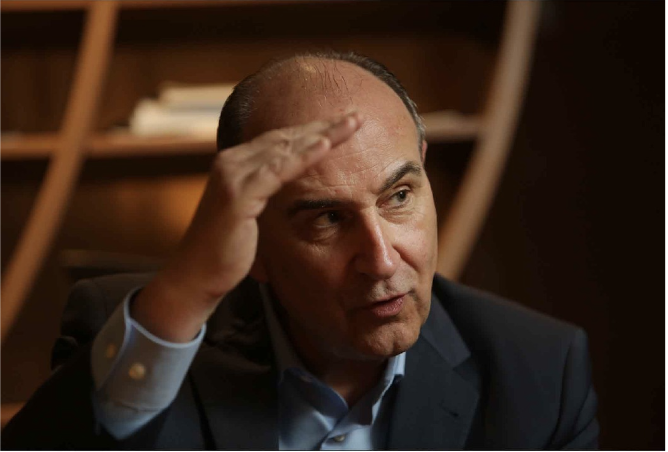THE WORLD’S #1 EXECUTIVE COACHING AND BUSINESS COACHING BLOG SINCE 2017.
How Critical Thinking Helps Leaders Work Through Problems
June 19, 2024 | Category: Blog, Critical Thinking | Last updated on: March 12, 2025

Most leaders associate critical thinking skills with achieving high-level performance and superior problem-solving abilities.
Modern business is becoming more complex every year, with potential consequences for managers and leaders who don’t keep up with the fast-paced changes. Leaders and their actions are closely watched by the public, and leadership accountability is an integral part of a thriving corporate culture.
This is why leaders are expected to show skills that enable fast and efficient problem-solving. Critical thinking enables leaders to draw the right conclusions and make the right strategic decisions to create a growing organization. It is one of the most important and expected skills in a modern leader’s toolbox.
Are Good Critical Thinking Skills Vital for Success?
Yes, critical thinking is a vital leadership skill. It enables leaders to rise above the noise, assumptions, and biases that can sabotage decision-making.
Critical thinking is an analytic approach to problem-solving and decision-making. By developing their critical thinking skills, leaders can improve their decision-making and enhance their organization’s position.
Leadership coaching can help leaders develop critical thinking, training their minds to think instead of merely learning facts. This helps leaders anticipate the many potential outcomes and consequences of their decisions and develop innovative solutions with their company.
Critical thinkers understand logical relationships and connect them with the “big picture” corporate vision and mission.
Critical Thinking in Leadership
Critical thinking optimizes decision-making. But in the context of intelligent leadership, it does more. Critical thinking makes strategic decisions with desirable outcomes more likely.
Like intelligent leadership itself, it is reasoned, purposeful, and goal-focused. It allows leaders to formulate informed and relevant ideas and inferences, solve problems, calculate probabilities, and make better decisions.
In my book, Intelligent Leadership, I have defined critical thinking as an essential outer-core leadership competency. Since the quality of leadership depends on the leader’s quality of thoughts, critical thinking skills define one’s effectiveness as a leader.
What Does The Data Say? Critical Thinking for Leaders and Managers
From interviews and surveys of 150 human resources executives, experts estimated that only 1 to 28 percent of current leaders in their organizations demonstrated “excellent” critical thinking skills (Bonnie Hagemann and John Mattone for Pearson, 2011).
Critical thinking helps you differentiate facts from assumptions.
Much of the instinctive thinking as a leader, if not carefully examined, tends to be biased, distorted, partial, uninformed, or even prejudiced.
Effective critical thinking requires evaluating all possible aspects of a problem, including emotional, cognitive, intellectual, and psychological factors.
Critical thinking is the opposite of instinctive thinking. Emotional intelligence, which complements critical thinking on the outer-core strategic competencies wheel, plays a critical role in the process by helping leaders manage their emotions and understand others’ emotions, thereby enhancing their ability to think critically and make effective decisions.
Critical Thinking vs Strategic Thinking
Critical thinking is the core component of strategic thinking, a less abstract measure of one’s ability to lead. In addition to strategic thinking, critical thinking allows leaders to:
- Embrace change
- Inspire others
- Create a vision and rally the “troops’ around it
- Understand how the different parts of the organization work together as a whole
Shallow thinking by leaders is costly. It hurts the organization, the employees, and the clients. Critical thinking enables leaders to apply their knowledge to the everyday challenges of their work. Thus, instead of walking-talking encyclopedias, they become valuable decision-making assets for their organizations and employees.
Effective leaders with good critical thinking skills can model this behavior for their peers and reports, further improving the company’s talent and leadership pool.
Are leaders born with critical thinking skills?
The answer is no. Critical thinking skills don’t come naturally to leaders. Even the top five percent of leaders, often considered “natural born leaders” have to work and develop the skills of critical thinking to be able to use it effectively in the business world.
The learning process requires leaders to look “under the hood.” If we don’t understand what drives us and how we make decisions, we can overlook fundamental issues that could negatively impact our organization.
How can we cultivate critical thinkers?
As a leadership development coaching expert, I firmly believe that it is possible to learn and practice all inner and outer-core leadership competencies. That includes critical thinking.
In my executive coaching books and blog posts, I have deconstructed critical thinking into three components.
The Ability to Recognize Assumptions
An assumption is a conclusion one reaches through the filter of one’s biases, desires, and views. Facts are observable. They exist without the need for validation. Basing decisions on assumptions instead of facts is risky and ill-advised.
The Ability to Evaluate Arguments
Leaders capable of critical thinking look to solve problems by reducing them to basic principles, considering alternatives, and challenging or testing assumptions.
The Ability to Draw Conclusions
Having gathered plenty of quality data and putting it through the filter of their critical thinking skills, intelligent leaders can draw better, more relevant conclusions that lead to better decisions.
Executive coaching can improve critical thinking by improving the sub-skills that contribute to it.
Critical thinking is an essential competency of John Mattone’s Intelligent Leadership framework.
Critical Thinking Process and Approach to Problem-Solving
As described in my book, Intelligent Leadership emphasizes a strategic and reflective approach to problem-solving. This process involves several key steps:
- Deep Reflection: Leaders are encouraged to engage in deep reflection to understand the underlying issues and dynamics of the problems they face.
- Strategic Analysis: Critical thinking requires analyzing the problem from various angles to identify potential solutions and outcomes. This involves evaluating the risks and benefits of different approaches and practical strategies.
- Consultation and Collaboration: Leaders are advised to consult with others, gathering diverse perspectives to enrich their understanding and solution strategies.
- Decisive Action: Once a thorough analysis is complete, effective leaders make informed decisions and act decisively, implementing solutions with precision and adaptability.
- Evaluation and Adjustment: After taking action, the process includes evaluating the outcomes and making necessary adjustments. This continuous loop of reflection, analysis, action, and evaluation forms the core of critical thinking in leadership.
This methodological approach helps critical thinkers not only solve problems more effectively but also develop a deeper understanding and stronger foundation in leadership capabilities by enhancing their analytical and decision-making skills.
How Leadership Coaching Can Help Develop Critical Thinking Skills
Leadership coaching, at least the way I understand it, views critical thinking as one of the fundamental levers through which it can effect meaningful, sustainable, positive change.
Business coaching and executive coaching professionals work with leaders, helping them assess their existing critical thinking skills, provide practical solutions to improve their skills and measure their progress.
Executive leadership coaching can help develop and train critical thinking skills in many ways:
- A leadership coach can give you an objective assessment of your current critical thinking skills.
- Executive coaches know how to ask the right questions to steer their coachees onto the path of improvement.
- Leadership coaching considers self-awareness and emotional intelligence the cornerstones of intelligent leadership. Self-aware and emotionally intelligent leaders understand the value of different perspectives.
- Business coaching encourages leaders to understand the strategic drivers of success for their organization in practical, financial terms.
- Coaches can provide valuable input, critique, and opinions, introducing alternative views and improving the decision-making skills of their clients.
Critical thinking is the leader’s best friend when it comes to decision-making. This outer-core leadership competency allows you to rise above the fray, eliminate distractions, recognize mistakes, and draw the correct conclusions.






